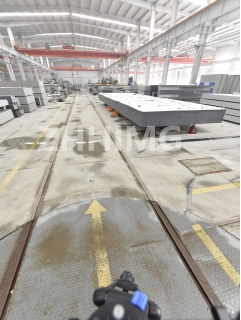Advantages of Precision Ceramic Components Over Granite
In the realm of manufacturing and engineering, the choice of materials can significantly impact performance, durability, and cost-effectiveness. Precision ceramic components have emerged as a superior alternative to granite in various applications, offering several distinct advantages.
1. Enhanced Precision and Tolerance:
One of the primary benefits of precision ceramic components is their ability to maintain tighter tolerances compared to granite. Ceramics can be engineered to achieve specific dimensions with exceptional accuracy, making them ideal for applications that require high precision, such as aerospace and medical devices. In contrast, granite, while stable, can be more susceptible to wear and environmental factors that may affect its dimensional integrity over time.
2. Superior Wear Resistance:
Ceramics are known for their outstanding wear resistance. They can withstand harsh conditions, including high temperatures and abrasive environments, without degrading. This durability makes precision ceramic components a preferred choice in industries where longevity and reliability are critical. Granite, while durable, can chip or crack under extreme conditions, leading to potential failures.
3. Lightweight Properties:
Precision ceramic components are generally lighter than granite, which can be a significant advantage in applications where weight reduction is essential. This characteristic is particularly beneficial in the aerospace and automotive industries, where every gram counts. The lightweight nature of ceramics can lead to improved fuel efficiency and easier handling during manufacturing processes.
4. Chemical Resistance:
Ceramics exhibit excellent resistance to chemicals, making them suitable for use in environments where exposure to corrosive substances is a concern. Granite, while relatively resistant, can still be affected by certain chemicals over time, potentially compromising its structural integrity.
5. Cost-Effectiveness:
Although the initial cost of precision ceramic components may be higher than granite, their longevity and reduced maintenance needs can lead to lower overall costs in the long run. The durability and performance of ceramics can result in fewer replacements and repairs, making them a more economical choice for many applications.
In conclusion, precision ceramic components offer numerous advantages over granite, including enhanced precision, superior wear resistance, lightweight properties, chemical resistance, and long-term cost-effectiveness. As industries continue to evolve, the demand for high-performance materials like precision ceramics is likely to grow, solidifying their place as a preferred choice in modern manufacturing.
Post time: Oct-29-2024

